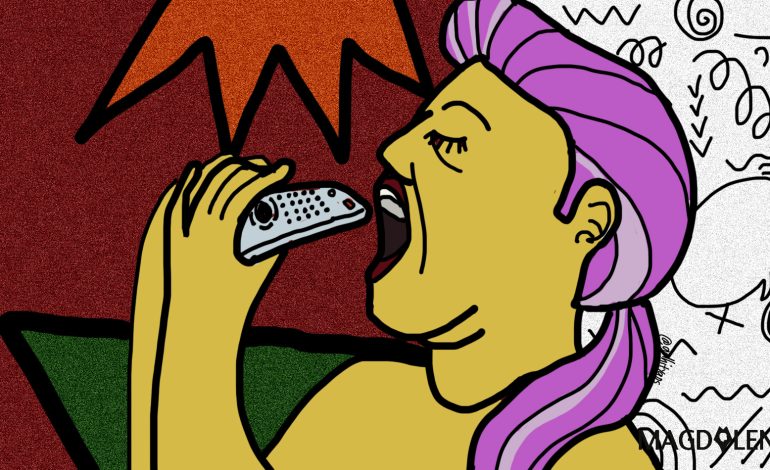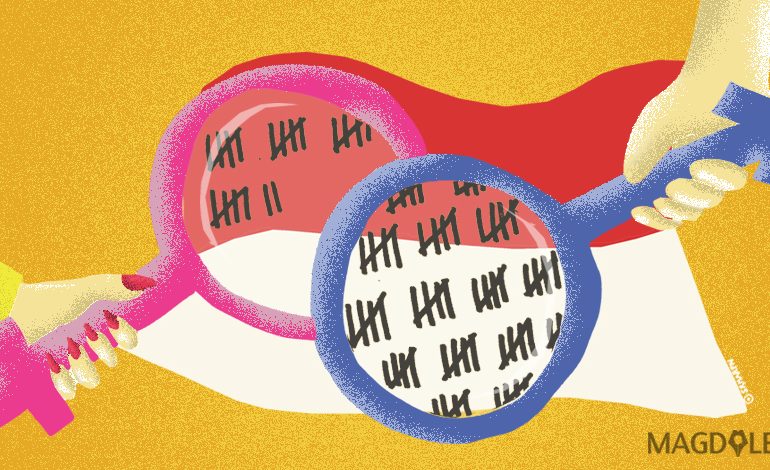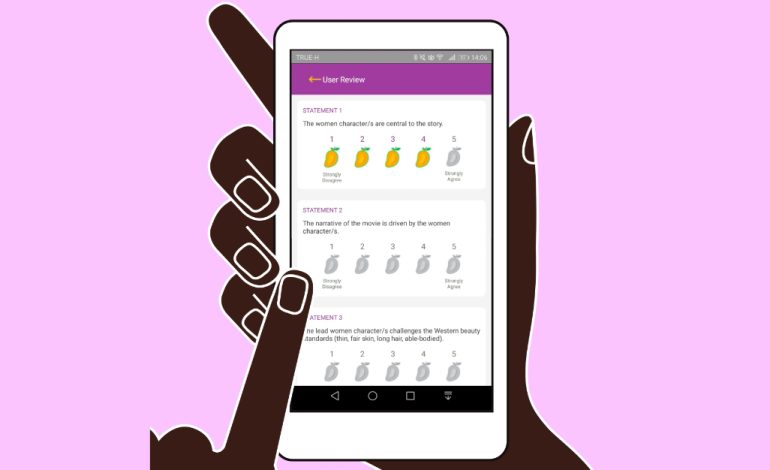#Fempop: Empowering Women through Pop Culture


It was a night when pop culture met activism, when creativity was emboldened by feminism – all taking place in a safe space for women.
Fempop Night, held on Valentine’s Day, brought together cultural practitioners from several Southeast Asian countries, New Zealand and Germany to share their stories, struggles, hopes and dreams as feminists in the world of pop culture. Hosted by Goethe-Institut Indonesia in collaboration with Missy Magazine, the event explored how pop culture can be used as a tool to elevate the voices of powerful women around the world.
“Fempop is an initiative we started in 2018 to organize a networking travel to Berlin. The idea is to connect cultural practitioners who were at the intersection of feminist activism and pop culture. We wanted to get them together and connect them to the scene in Germany,” Head of Cultural Programs at Goethe-Institut Indonesia Anna-Maria Strauß said.
One of the most awaited activities on Fempop Night was a community quilt initiative by the founder of Grrl Gang Manila feminist collective, Mich Dulce. Anyone could contribute to the project by decorating a 10-by-10inch fabric with sequins, glitter or any other decorating tools to be added to the quilt.
“We wanted the quilt to represent women’s unpaid domestic work and emotional labor,” said Dulce at the event, adding the choice of soft material represented women’s work. “We started from Manila, then Berlin and now it’s in Jakarta. It’s still ongoing though; we want it to be huge.”
The size of the fabric used for the quilt was chosen intentionally to draw public’s attention to the ten-trillion dollar estimated amount of unpaid domestic and emotional labor by women worldwide every year, she said.
The 11 members of the Fempop group who came to Jakarta last week talked about the best ways to amplify underrepresented voices in their respective communities.
Cece Opas, a content creator from Thailand shared her struggles and what she does to raise awareness on the struggle of women in prison through photography.
“We need to find a way to evoke people’s sympathy in a language that would interest them,” she said.
Indraswari Pangestu, an author and digital strategist from Indonesia, shared her own struggles with her identity and the problems she faced as a young girl, until she discovered the thing that changed her life: the internet.
“I understood and learned so many things once I discovered the internet. It changed my life and I want other struggling girls to find the right answers too. This is when I realized I wanted to be a digital strategist,” she said.
This was the start of her involvement with Springster, an online forum where young girls from different countries can share or learn more about the problems they face. Indraswari said over 100 thousand girls aged 11-18 from Indonesia, Nigeria, South Africa and the Philippines write on this platform about issues surrounding health, safety and empowerment.
“Unlike most online forums, Springster is very strict with their moderating mechanism to ensure the safety of the girls and to protect their data from sexual predators,” she explained.
Many young girls lack good role models in their lives and this is not helped by the largely poor women representation in pop culture. But at the same time, most young girls in Indonesia prefer to see “light content” such as pictures than to read more substantive information.
“We create an online personae called Laras and Sekar who play the role of big sisters to the young girls on Springster. We hope it would encourage them to speak up when they need someone to listen to them. We also created a web series called ‘Hara-Huru Dara’ that discusses difficult topics in a lighter tone, like the problems that they face as young girls,” she said.
Also contributing to the discussion was Sonja Eissman, founder and editor of Missy Magazine, a Berlin-based feminist journal that covers pop culture, politics and style “with a feminist attitude.”
Eissman talked about zine culture as a tool to empower women: “Zines have always been used by people whose voices are not heard by the mainstream media, so, yes, we are perfect for feminist issues.”
“Perfect for you to share your opinions and you don’t have to worry about censorship or how what you say wouldn’t fit into a certain stereotype because your content is really up to you,” she added during the second panel discussion was moderated by Managing Editor of Magdalene, Hera Diani, who is also part of the Fempop initiative.
Dia Sabrina of Singapore, who co-founded The Local Rebel collective, said zines normally covers a particular topic in each edition, so it’s more effective to highlight certain social issues. The Local Rebel is a collective of intersectional feminists aged 16-20 who run a non-profit zine of the same name to create a safe space for marginalized voices in Singapore.
“Mainstream media tend to be reluctant to address sensitive social issues, so those are the topics that we want to cover to raise public awareness,” they said.
Find out why death-row convicts in Indonesia are still denied fair trials.






















